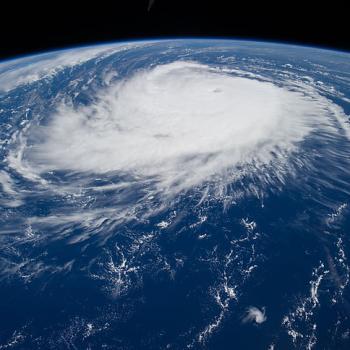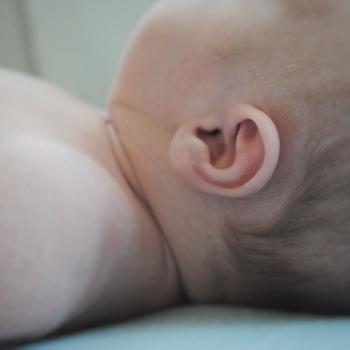
In the aftermath of the monstrous shooting at the mosques in Christchurch, New Zealand there was an outpouring of sympathy and well wishes to the victims, their families, and the nation as a whole. For people of faith, we naturally turn to God in the aftermath of such ghastly events. There, however, has been a move to stigmatize the saying “thoughts and prayers.” Representative Alexandria Ocasio-Cortez (AOC) seemed to speak for many when she wrote, “What good are your thoughts and prayers when they don’t even keep the pews safe?” Others, particularly in the atheist/agnostic community expressed similar thinking by arguing that “thoughts and prayers” are merely a way of avoiding the important policy discussion that should take place in the wake of these horrible events. According to some, “thoughts and prayers” are what Marx called the “opiate of the masses.” Nothing could be further from the truth.
We turn to prayer because we know that the most dangerous things in the world are not weapons but ideas. A weapon is incidental, it is the poison afflicting the mind that causes acts of mass murder. The most deadly acts of terror that have happened in our country were accomplished with box cutters and airplanes; diesel fuel and fertilizer. The depraved mind can make implements of destruction out of just about anything. When we discuss the actions of those who would commit mass murder, we have to discuss the ideas that have turned them into monsters. The problem, of course, is that there is no easy policy prescription to deal with a corrupt mind. The only thing I know that can change a mind bent on destruction is Divine intervention. So, we pray.
Beyond those whose minds are poisoned by evil ideologies, there have always been those among the human population who are dangerously insane. There are approximately 7.53 billion people on planet earth. If only .01% of people are dangerously insane, then there are 753,000 people with mental illness such that they are bent on mass harm. The question then is not why do mass casualty events happen so frequently but why so infrequently. So, we pray.
Far from being a way of avoiding relevant policy questions, prayer is the way we want to ground policy questions. Christians are charged by the Scriptures to pray for those who govern our nation. We pray for our leaders to have the wisdom to come to policies that will protect our people so that all can lead peaceful lives. So far, debates in our nation’s capital have focused on guns and gun control. School safety bills have languished. Our mental health system is in need of serious reform. A consensus on what to do is non-existent. Goodwill between the parties has been badly fractured. Wisdom seems lacking. So, we pray.
First responders have a difficult job. With the possibility of mass casualty events at every soft target, they have to be highly skilled and vigilant. They also have to run toward the gunfire, toward the flames, and toward the collapsing buildings. Theirs is an inherently dangerous job. So, we pray.
Representative AOC asks a natural question, “What good are your thoughts and prayers when they don’t even keep the pews safe?” The question, however, misses an important point about Christian worship. Worship has rarely been safe for Christians. The first believers, those first charged to pray for those who governed them, had to worship in catacombs because worshipping Jesus could lead to them being fed to lions or set on fire to light Caesar’s garden. In moderns times, Christians in North Korea worship knowing that being caught could lead to their imprisonment or execution. Christians in the middle east worship knowing that they may be hunted by Islamists for the crime of worshipping Jesus. For Christians, worship is an act of turning toward God even when it may be costly. For the times and places where worship is free and safe, we are grateful. We know, however, it has not been safe in the past and may not be safe now or in the future. We pray that worship may be safe but, more importantly, we pray that the world will be changed. So, we pray.
The particular event in Christchurch was an attack on Muslims. I will not give the ideology of the perpetrator the dignity of expression. I will only note that God has said, “You shall not kill.” Killing others at worship is not an expression of obedience to God. It is an expression of hate and a soul rotted by an evil ideology. As believers in Christ, we are to want the highest and best good for everyone, including Muslims. So, we pray.
The victims of violence and their families are heartbroken by the terror that has afflicted them. We pray for their healing in body and soul. We recognize that this kind of event can lead to mental anguish that lasts long after the hospital stays are over and the funerals are completed. We believe the only true comfort comes from God. So we pray.
Jesus teaches us to pray for our enemies. Christians are then to pray for the perpetrators of these terrible events. We are to pray that God will change their hearts. We are to pray that they will come to repentance for the terrible acts they have committed. This, however, is only accomplished by the Spirit of God. So, we pray.
So with the courage of the saints and at the invitation of God we come to before God boldly and pray the prayer our Lord taught us to pray:
Our Father which art in heaven, Hallowed be thy name.
Thy kingdom come, Thy will be done in earth, as it is in heaven.
Give us this day our daily bread.
And forgive us our debts, as we forgive our debtors.
And lead us not into temptation, but deliver us from evil: For thine is the kingdom, and the power, and the glory, forever. Amen.











